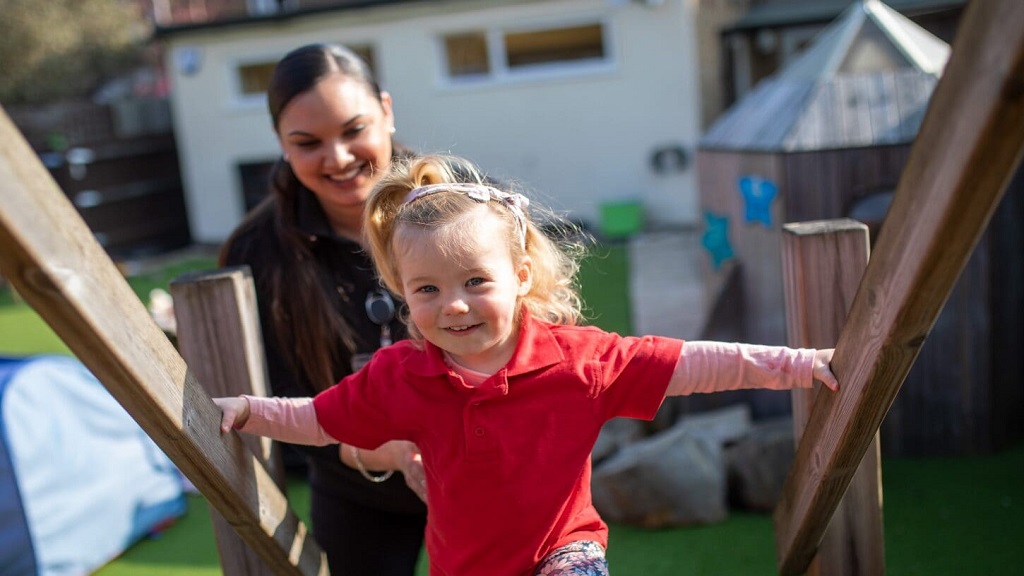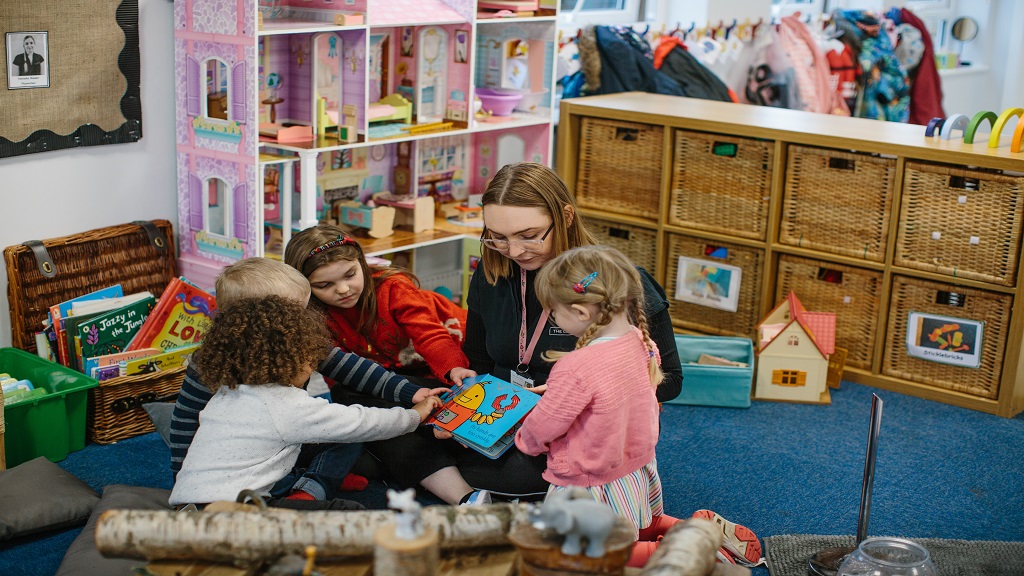Family First are big advocates of team members completing apprenticeships and learning while they earn, with more senior staff now…
No language barriers
Three in every 10 nursery children have English as an additional language, according to the most recent government figures. Charlotte Goddard talks to settings about how they support children.
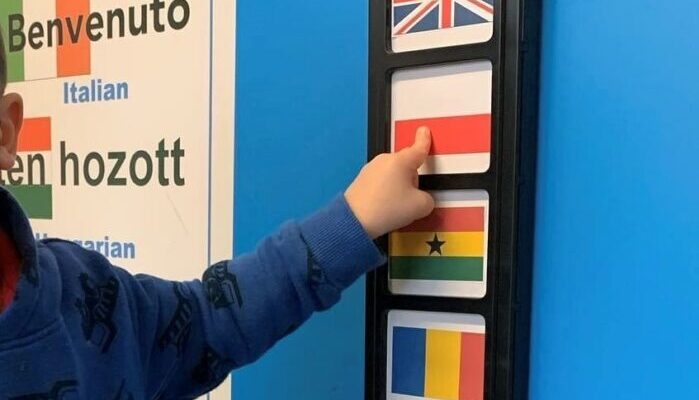
Speaking more than one language is the norm globally, with the majority of children worldwide growing up multilingual. There is evidence that children who speak more than one language can think more creatively. “Bilingualism is so valuable to cognitive thinking,” says Leyla Osman, practice development manager at Nannie Annies Daycare in Woodford Green, East London.
In its online guidance for early years providers the government says that children with English as an additional language need to hear English spoken by the adults in the setting in as many different contexts as possible. However, it also says that it’s good for children with English as an additional language (EAL) to be able to speak their home language in the setting and talk to providers who speak the same language if there are any.
From January, nurseries are no longer required to “take reasonable steps” to provide opportunities for children with EAL to use their home language in play and learning, following reforms to the Early Years Foundation Stage (EYFS). However, a child who develops good use of their home language is more likely to develop good English, so it’s still good practice for settings to do what they can to support them.
The Early Years Alliance has launched a toolkit to support early years settings delivering provision to families who are multilingual or who are speaking and learning English as an additional language. The toolkit, which is sponsored by digital picture book service Polylino, includes a Best Practice Guide with information, advice and guidance on topics including settling in children who are new to English-speaking settings, and how settings can prepare their provision to support multilingual families. Interactive resources include template forms, development plans, quizzes and audit materials which settings can adapt. Settings will also receive a one-hour virtual consultation with one of the Alliance’s early years experts.
Finkley Nurseries
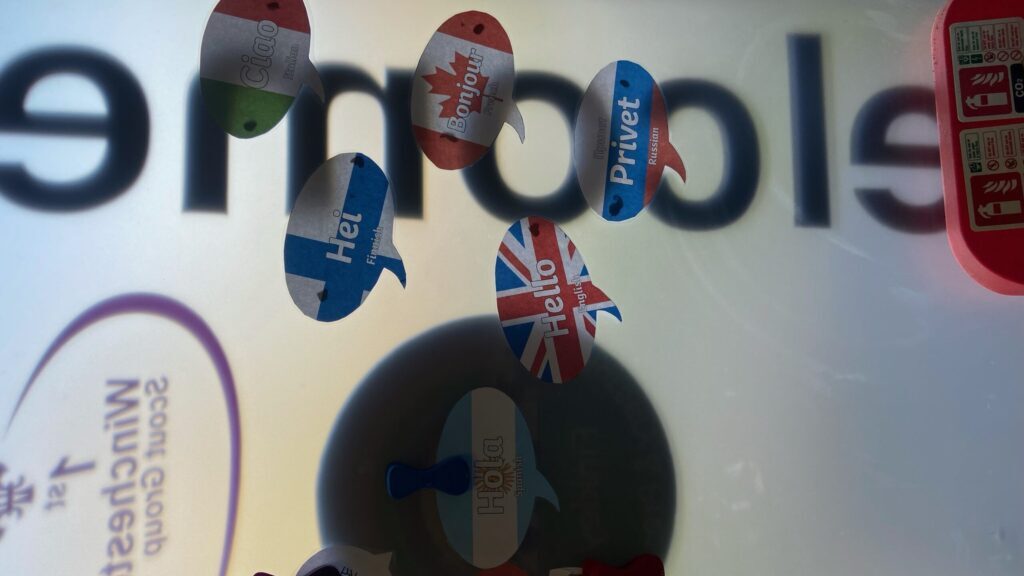
Danielle Wall is special educational needs co-ordinator (Senco) area lead for Finkley Nurseries, which comprises four settings in Hampshire with a high number of children with EAL speaking a wide range of languages. The group uses Polylino, which provides digital books that can be listened to in multiple languages, to show children their home language is valued.
“In one of our settings we had a high percentage of Polish children,” says Wall. “One of these children had exceptional language skills and could translate both languages. We played a story to a group of children in Polish and the child very proudly explained to her friends what the story was saying and even helped her friends to say some words in Polish after the story.”
The nurseries mainly use the digital books during small group times when the children can gather round for a story. “The app gives you access to a wide range of books which often link in with our weekly themes and also allows you to listen to the stories in a variety of languages,” says Wall. “This is extremely useful when supporting children with EAL in settling into the setting. The children are able to hear their home language and this often brings them comfort.”
The settings also use a wide range of other resources including photos and posters with information about different countries. “We include real food in our role play area from a wide range of countries,” says Wall. “We have recipes with pictures from different countries in our home corner and mud kitchen, and clothes and toys that represent different cultures.”
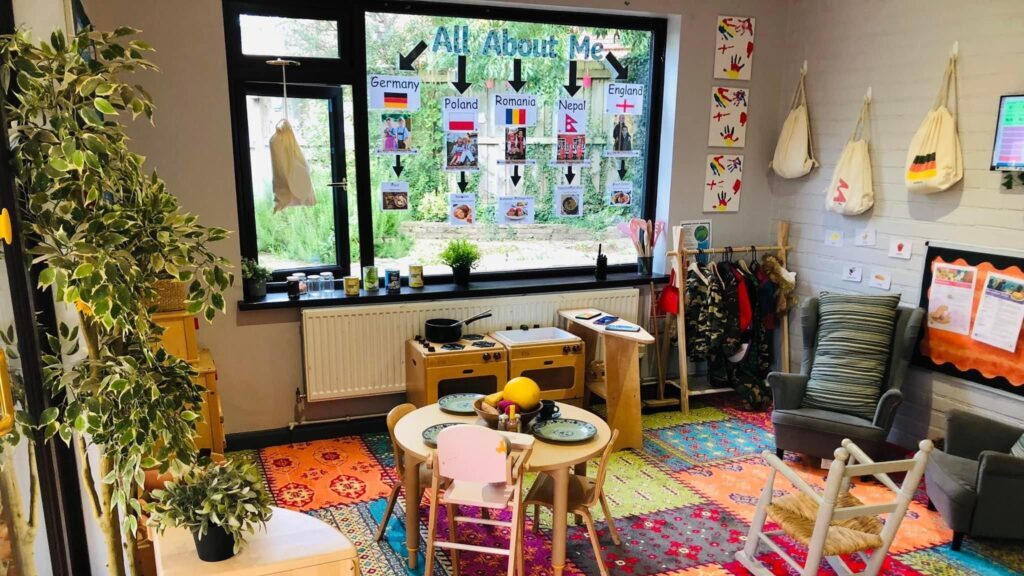
All the Finkley Nurseries settings use Talking Tiles, from supplier TTS Group, which have a hello message recorded in different languages. “We normally get the parents to record these so that they are accurate,” says Wall. ‘Country bags’, created by staff, contain items from a specific country. “This not only educates all of the children when looking through the bags but also gives children with EAL the opportunity to talk about their experiences,” explains Wall.
The settings recently introduced the BLAST (Boosting Language Auditory Skills and Talking) programme, which works on the underpinning skills for language such as turn-taking and listening. “We have trained BLAST practitioners who are carrying out groups with children who have EAL as well as those with communication difficulties,” says Wall.
Little Angels
Little Angels Preschool in Boreham Wood was rated Outstanding in February 2023, with inspectors noting “children who speak English as an additional language make extremely good progress.” The pre-school has completed the Elklan Communication Friendly Settings training, which includes a 10-week course in communication and language support.
“This has been really helpful in understanding each process a child needs to go through to learning how to communicate,” says manager Sophie Perkins. Little Angels uses the Wellcomm assessment tool which helps identify children experiencing barriers to speech and language development. Ofsted highlighted the setting’s use of visual cue cards to support children and help with their understanding.
“When communicating with the children, particularly those with EAL, helping them to learn words quickly with visual cues works well for us,” says Perkins. “We have a set of cards for frequent words such as snack, toilet, coat, happy, sad, and the children can use these too, to help communicate their needs when they do not have the words.” Repetitive singing and storytelling supports the development of speech and language for all children. Little Angels uses props which the team make themselves, but Perkins points to TTS Group’s Soft Number Rhymes Basket as an example of props which can be bought. Stories include ‘Brown Bear’, ‘Dear Zoo’ and ‘We’re Going on a Bear Hunt’.
Nannie Annies
Nannie Annies’ Osman says it’s important to celebrate the home language of staff. “We are living in a global era and it is important to show children that diverse languages are spoken. A lot of our staff come from different countries and speak different languages,” she says. “Some Spanish staff talk to the children in Spanish. Children love that, and it allows staff to feel they are part of the family.” When children with English as an additional language join Nannie Annies, staff ask parents to help put together a list of the ‘top 100’ words that they use at home, in their home language and in English. “We have just had a new family join who speak Turkish, and their 100 words have been valuable,” she says. “We want children to walk in and feel at home.”
Latest Features
NMT takes the temperature of the early years market and offer tips for marketing, launching a new nursery, and utislising…
In this leadership series, NMT speaks to Gareth Degenhart, founder and managing director, The Lime Trees What has been your…


